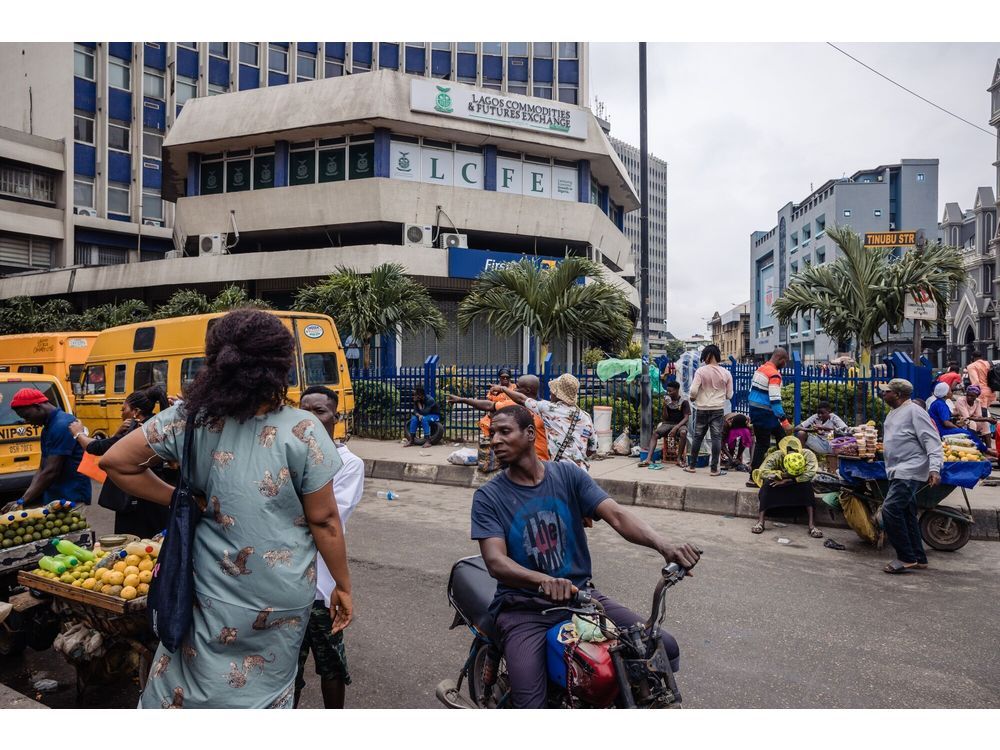
Article content
(Bloomberg) — Nigeria’s annual inflation decelerated for the first time in almost two years, providing some respite to consumers who have become increasingly frustrated by the high cost of living.
Consumer prices rose 33.4% in July from 34.2% a month earlier, according to data published on the website of the National Bureau of Statistics on Thursday. The median estimate of eight economists in a Bloomberg survey was 33.3%.
Article content
The reading, and expectations that inflation will continue to ease, could see monetary policymakers leave interest rates on hold at their next meeting in September, after lifting borrowing costs by 15.25 percentage points to 26.75% since 2022.
Central bank Governor Olayemi Cardoso has repeatedly said that policymakers are committed to defeating inflation, while suggesting last month that rates could come down in the not-too-distant-future if price pressures moderated.
Inflation is expected to continue to cool because of plans to reduce the cost of food, including a 180-day window to import wheat and corn duty free, and as the impact on prices of a currency devaluation and partial removal of fuel subsidies last year recede. The measures were part of reforms introduced by President Bola Tinubu after he took office in May 2023 to attract investors, float the currency and ease budget pressures.
The slowdown will also be welcome by Nigerians angered by high inflation. Crowds chanting “we are hungry” marched through the streets of several cities earlier this month demanding the government fully reinstate fuel subsidies, cut electricity tariffs and reduce duties on imports. A clampdown by security forces left at least 13 dead.
The main driver of the deceleration was food inflation. It slowed to 39.5% from 40.9% in June. Core price growth, which excludes agricultural produce and energy, quickened slightly to 27.5% from 27.4% a month prior.
—With assistance from Simbarashe Gumbo.
Share this article in your social network